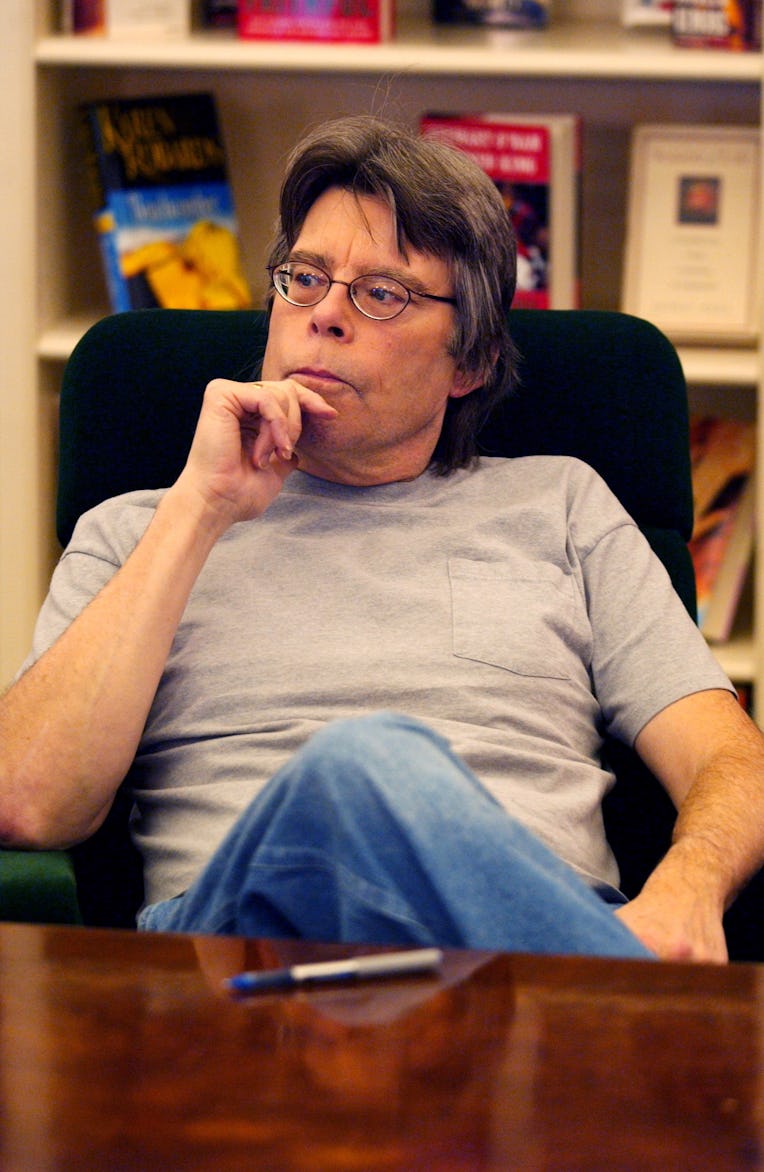When Did Stephen King Start Using the Phrase "Gone Like Enron"?
He says it more than you'd think

Last weekend, new Twitter chief Elon Musk took a break from fathering children to father an idea: charging $20 for Twitter verification. Any blue checks would have 90 days to fork over one crisp Jackson per month or lose their largely arbitrary indicator of authenticity. This did not go over well, perhaps because Musk overestimated how much users value getting to show up in the “Verified” notification tab. But don’t take it from some blogger. Take it from Stephen King:
The author’s complaint went viral, partly because it prompted a response from Musk, in which the natural businessman began to haggle down his own deal. Thanks to Stephen King, verification will now cost just $8.
But the tweet’s appeal may also have had something to do with King’s choice of words: “Gone like Enron.” It sounds like an idiom. It has a nice rhythm to it. What does it mean? Presumably that he will disappear, much like the Houston-based energy and commodities company did after it was embroiled in an accounting fraud case that made it synonymous with corporate corruption. It also rhymes!
The ambiguity of the phrase was addressed by fellow author Erin Somers, in a tweet that has since been deleted, due to horror fiction fans screaming and throwing up. If memory serves, it said something to the effect of “can’t stop thinking about stephen king saying ‘gone like enron’ in that tweet. That’s not a real phrase stephen…” But one of her replies lives on:
It seems that King has used this phrase before. At least three times — in his books, Finders Keepers (2015), 11/22/63 (2011), and Faithful: Two Diehard Boston Red Sox Fans Chronicle the Historic 2004 Season (2004). Five, if you count these tweets:
Outside of King, the phrase appears in at least two other texts: Nomi Prins’s 2006 book, Other People’s Money: The Corporate Mugging of America, and a 2004 policy and economics tome titled Agile Energy Systems: Global Lessons from the California Energy Crisis. The first edition of King’s Faithful debuted on Dec. 2, 2004, meaning that King has been using “gone like Enron” for at least 18 years. But how did the phrase enter his lexicon to begin with?
To find out, I reached out to eight of King’s representatives, only two of whom responded. The first was a bust, responding kindly:
Dear Tarpley - I don’t really handle his domestic inquiries. You might try K**** M*******, King’s publicity person at Simon & Schuster, for this.
I had already tried that person, unfortunately. But a different publicist did get back to me:
Hi Tarpley, I ran your question past Stephen King and this is his response:
“I heard it from the novelist Stewart O’Nan several years ago.”
Coincidentally (or maybe not so much), O’Nan was King’s co-author on Faithful: Two Diehard Boston Red Sox Fans Chronicle the Historic 2004 Season, the 2004 book in which he first used the phrase. But did the trail end — or start, rather — with O’Nan? That was a question for his publicists, three of whom I emailed, and one of whose emails bounced back by way of MailerDaemon. The other two did not respond themselves, but I can only imagine they understood the spirit and urgency of this investigation, as within 24 hours Stewart O’Nan sent me an email with the subject line: “Gone like Enron.”
It definitely helps. This is an objectively sweet and thoughtful response to a mostly dumb question. But O’Nan didn’t stop there. An hour later, he followed up with this:
Beautiful. In a sense, Twitter Blue will now be $12 cheaper all because King K. Rool and his wiley crocodiles made off with the Kong family’s banana hoard.